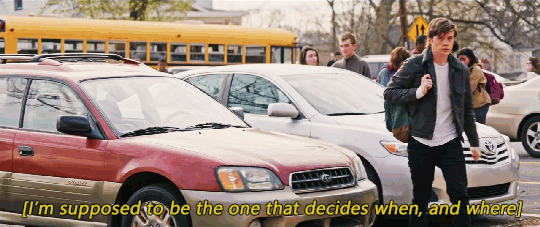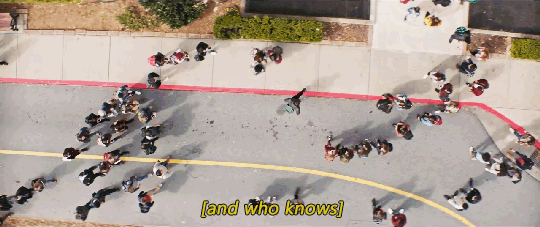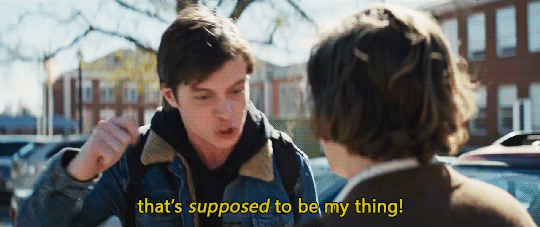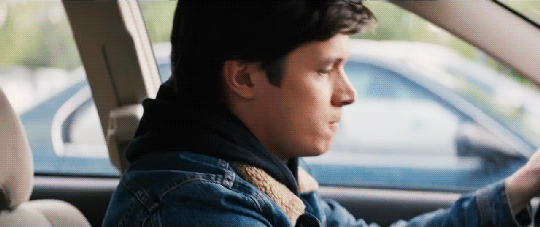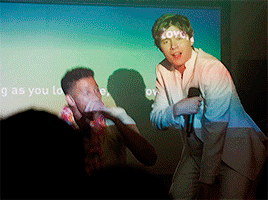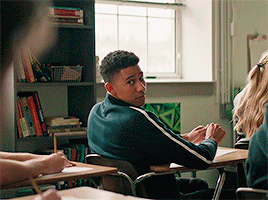Text
Discussion
Did the theory do well in explaining your characters development?
Kohlberg's theory provided a strong foundation for me to explain the ways in which Albertalli's characters develop in line with the theory
Was the theory capable of capturing or explaining all the experiences of your character?
I believe Kohlberg's theory is capable of capturing the essence of the character's experiences, because of the theory's ability to take into account the timelessness of moral development
Is this theory a good “fit” when making a psycho-developmental assessment of your character?
Yes! The stages as described are ones that can be applied universally, which is a large reason why it became so popular
Given your characters identity (e.g. based on their cultural, religious, gender, sexual identities) are these theories valid to use? Why or why not?
I believe Kohlberg's theory is valid to use with regards to Simon and the other characters, because these human experiences are not strictly dependent on ones culture, religious identity, gender, sexual identity, etc.
3 notes
·
View notes
Text
“White shouldn’t be the default any more than straight should be the default. There shouldn’t even be a default.”
— Becky Albertalli, Simon vs. the Homo Sapiens Agenda
3K notes
·
View notes
Text
Theory in Practice: Simon Spier
Simon is a perfect example of what happens when moving from the Conventional stage of Moral Development to the Postconventional stage...but let me explain why
Conventional societal norms tell us that loving anyone other that the opposite gender is something to be ashamed of. This is why Simon struggled so hard when coming out to even his friends and family- he was afraid his sexual orientation would be at odds with the conventional laws of society, and that the people around him would see him differently because of it.
Throughout the novel and movie, Simon struggles to find out who Blue is, assuming on several occasions that he was White, even being surprised to find out Blue was actually Bram. This is yet another norm perpetuated by man-made laws and societal standards.
His transition into a Postconventional mindset occurs when he makes the decision to defy the opinions of others and come out, both privately to the people he cared about and publicly when he kissed Bram on the ferris wheel.
Simon makes the decision to come out to the world and be his true self according to his personal ideals and motives, aligning himself with Postconventional Morality
0 notes
Text
1958
- Lawrence Kohlberg develops the Moral Development Theory in order to expand Jean Piaget's Theory of Cognition
0 notes
Text
Kholberg's Theory of Moral Development
Lawrence Kohlberg identified and broke down the major stages of human development as they relate to moral development.
(Stage 1) Preconventional Morality-
This is the stage during which children make moral choices based on their perception and expectations of rewards and punishment.
(Stage 2) Conventional Morality-
Kohlberg believes the majority of the population will remain in this stage throughout adolescence and adulthood. In this stage, people based on the rules deemed to be in accordance with societal moral behaviors. In this stage, the goal is to follow rules so that one can maintain a positive reputation and be perceived well by society.
(Stage 3) Postconventional Morality-
The final stage of moral development is one not many people achieve, according to Kohlberg. In it, one realizes that the rules and laws we attempt to follow so closely can be flawed, because they too were created by humans. As a result, the individual chooses to self-govern based on personal ethics and principles.
0 notes
Text
Lawrence Kohlberg (1927-1987)
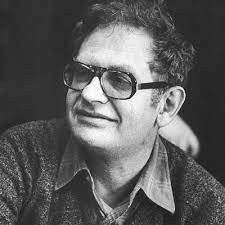
0 notes
Text
Something that I think is really important in the book, that’s not in the movie, is that Simon NEVER tells anyone about the blackmail.
Martin tells Abby but we never see Simon actually tell someone.
I kind of assume it comes up with Bram, that he would tell him that Martin posted because of his crush on Abby.
But the reason this is really important, is because of the mixed feeling of shame and anger Simon has over the blackmail. Half the time he hates himself for helping Martin, and the other half he‘s terrifed he’s not doing enough and he’s going to get outed and lose Blue.
92 notes
·
View notes
Text
So this part kills me every time but I was so focused on Simon and Martin that I never realized
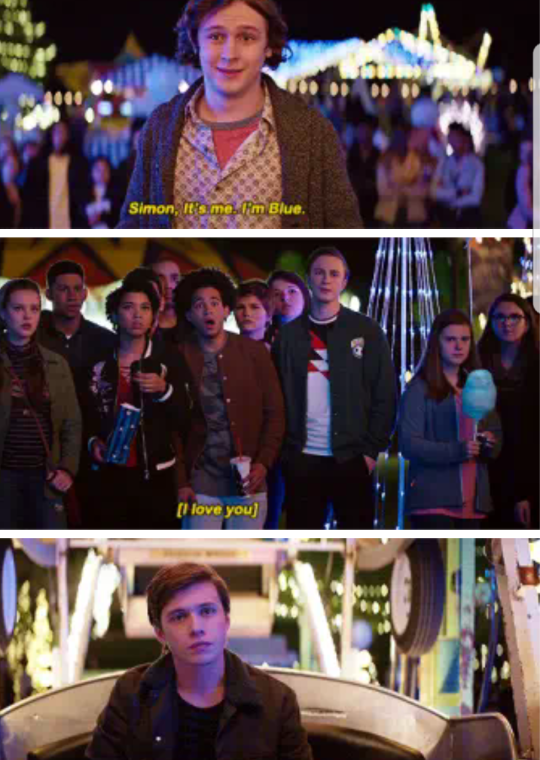
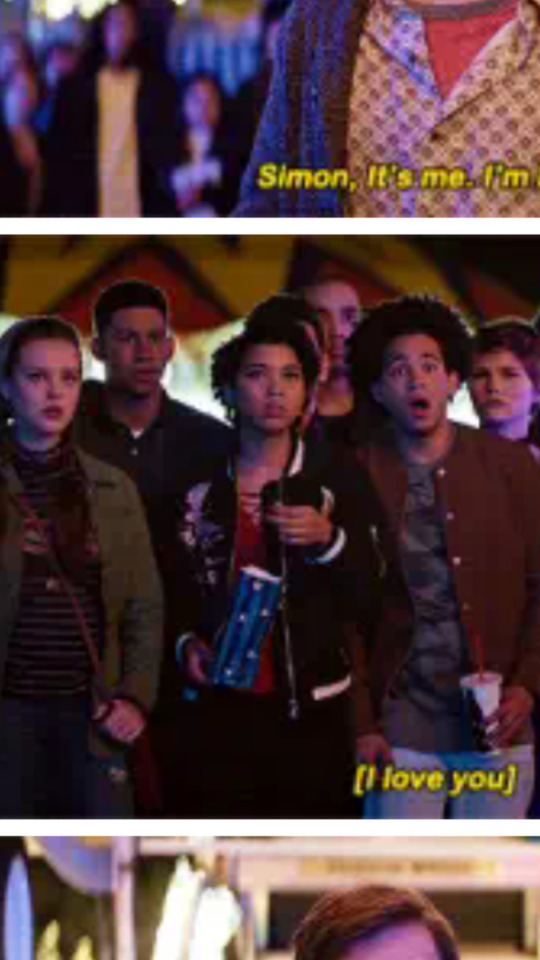
Bram is RIGHT THERE
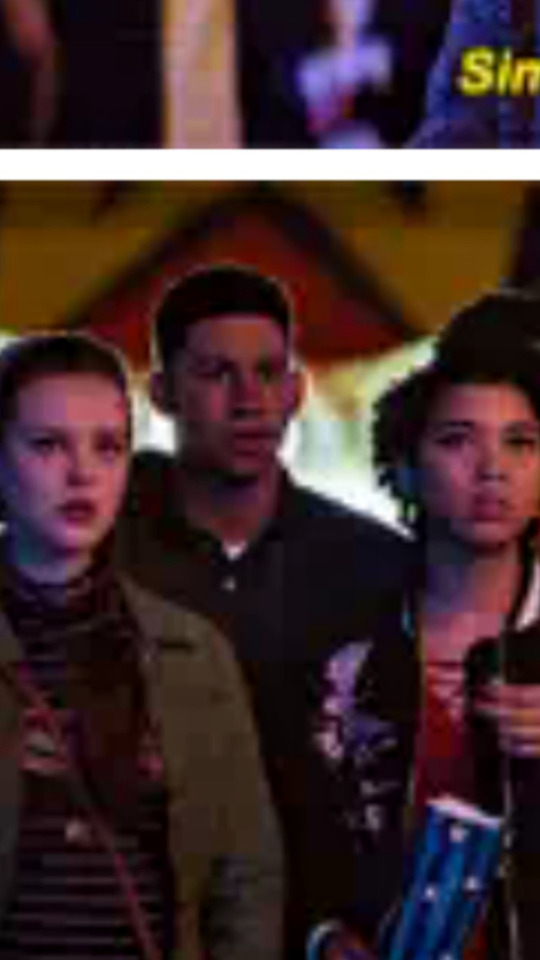
I mean like imagine you're about to reveal your identity to the guy you're in love with and then someone just PRETENDS TO BE YOU
309 notes
·
View notes
Text
how come those two homophobic jocks got in trouble for that bullshit they did in the cafeteria but martin didn’t get any flack for literally blackmailing simon and outing him to the entire school? somebody lmk
1K notes
·
View notes
Photo
Love, Simon resolution!!
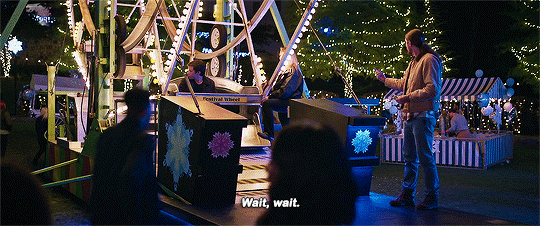
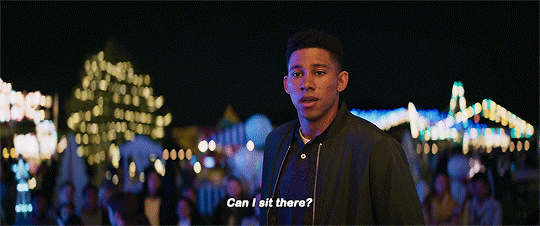
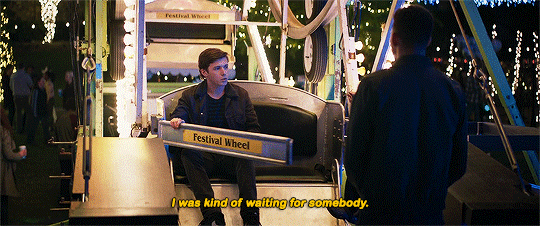
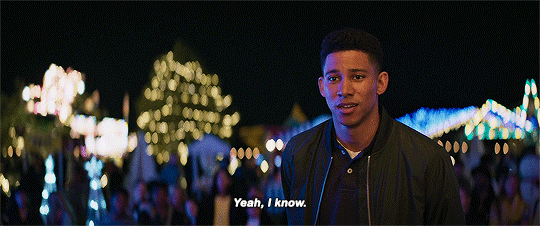
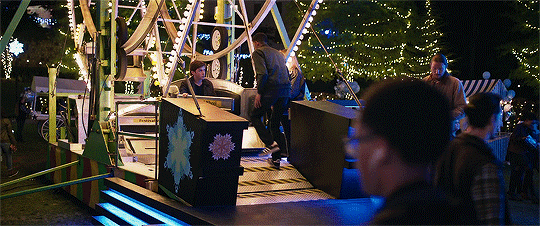
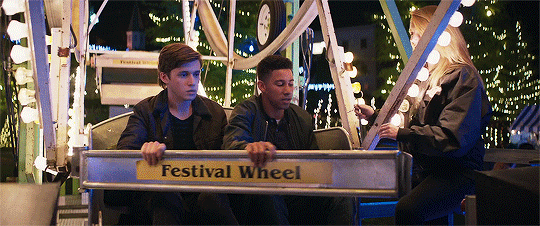
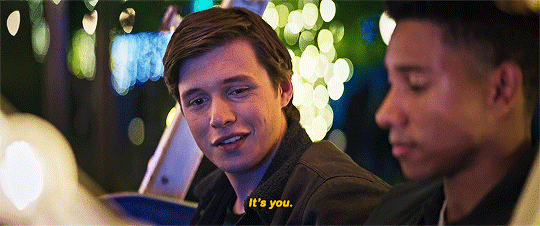
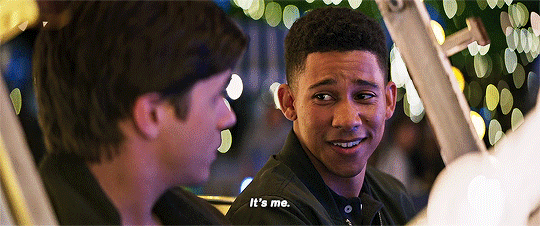
Last call for the Ferris Wheel!
54K notes
·
View notes
Text
*BOOK SPOILERS*
"Can I sit here?" he asks, and my eyes snap open.
It's Cute Bram Greenfeld, of the soft eyes and soccer calves.
I loosen the seat belt to let him in. And I smile at him. It's impossible not to.
"I like your shirt," he says. He seems nervous.
"Thanks," I say. "It's Elliot Smith."
The operator reaches over us and pulls the guardrail down, locking us in.
"I know," says Bram. There's something in his voice. I turn to him, slowly, and his eyes are wide and brown and totally open.
There's this pause. We're still looking at each other. And there's this feeling in my stomach like a coil pulled taut.
"It's you," I say.
"I know I'm late," he says
(Albertalli 266-267)
0 notes
Text
“White shouldn’t be the default any more than straight should be the default. There shouldn’t even be a default.”
— Becky Albertalli, Simon vs. the Homo Sapiens Agenda
3K notes
·
View notes
Text
youtube
watch the trailer for Love, Simon, the movie adaptation of the novel Simon vs. the Homo Sapiens Agenda!
0 notes
Text
major themes of the novel
identity- self discovery and finding their places in the world...all while managing high school drama
sexuality- who they love and how the world sees them because of it
family- change and growing pains
relationships- old dynamics changing and new relationships emerging from that change
2 notes
·
View notes
Text
"And he drums his hads across my shins, and we talk about everything. Little Fetus being the size of a sweet potato. Frank Ocean being gay." (Albertalli 279)
Simon vs. The Homo Sapiens Agenda
0 notes
